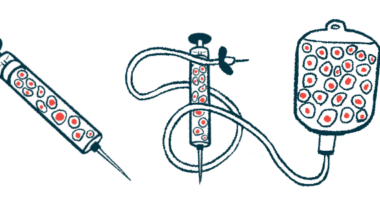Parkinson’s clinical trial of iRegene’s NouvNeu001 doses 1st patient
Phase 1/2 study is testing cell therapy for moderate to advanced disease

The first patient has been dosed, and the observation period completed, in a clinical trial in China that’s testing iRegene Therapeutics’ NouvNeu001 cell therapy for moderate to advanced Parkinson’s disease.
The Phase 1/2 clinical trial (NCT06167681) started in early January at Beijing Hospital, following a green light from the National Medical Products Administration of China, iRegene said in a company press release. Recruitment is ongoing at two locations in the country — Beijing and Wuhan — with the trial expected to enroll about 40 Parkinson’s patients overall.
Meng Cai, PhD, iRegene’s chief medical officer, said the completion of the first patient dosing and the observation period marks an important milestone in the company’s own development — as a biotech that, according to the release, is “focusing on accurately reprogramming cell fate and functions by chemicals.”
The experimental therapy leverages iRegene’s artificial intelligence (AI) plus chemical induction platform to advance novel treatment alternatives for neurodegenerative diseases, including Parkinson’s, the release states.
Safety, efficacy are focus of this Parkinson’s clinical trial
Parkinson’s disease is caused by the loss of dopaminergic neurons, which are the nerve cells responsible for producing dopamine, a neurotransmitter. Dopamine is a signaling molecule essential for muscle control, and its loss leads to problems with nerve signaling that give rise to the disease’s symptoms.
NouvNeu001 is composed of human dopaminergic neuron precursors — dopamine precursors are drugs that are converted into dopamine in the brain — derived from induced pluripotent stem cells (iPSCs). iPSCs are stem cells generated from mature cells that can give origin to different cell types, including neurons.
The cells are then delivered by a guided intracerebral (directly into the brain) injection in the striatum, one of the brain regions affected by Parkinson’s disease. The striatum is involved in voluntary movement control. Following the transplant, the cells will differentiate into new dopaminergic neurons that are designed to establish connections with existing neurons and increase dopamine release.
The Phase 1/2 trial will assess the safety, tolerability, and efficacy of a single injection of NouvNeu001 for treating people with moderate to advanced Parkinson’s. Eligible participants will range in age from 50 to 75.
Both Beijing Hospital and Zhongnan Hospital, in Wuhan, will serve as study sites. In the release, the first completed observation period was called “successful.”
Among the trial’s main goals is to assess the incidence and severity of adverse events at six months and one year after the transplant. Changes in the participants’ motor function also will be evaluated with the Movement Disorder Society-Unified Parkinson’s Disease Rating Scale (MDS-UPDRS), a commonly used measure, as another main goal.
The study also will assess changes in patients’ nonmotor function, with evaluations of depression, anxiety, sleep, and quality of life, at one and two years.
Moreover, the trial will analyze NouvNeu001’s continuous safety and tolerability, its effects on Parkinson’s disease severity, and its effect in patients’ off time — periods when medication effects wear off and symptoms return — up to five years after the transplant.







